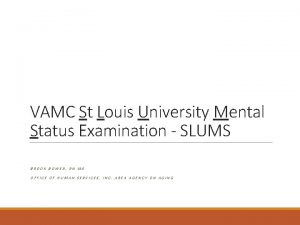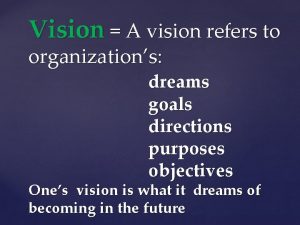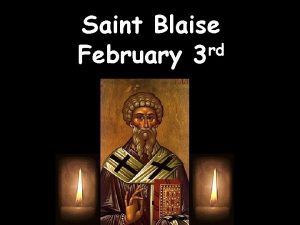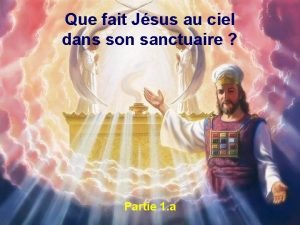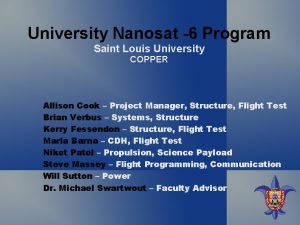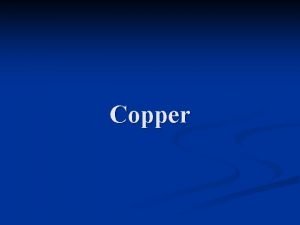University Nanosat 6 Program Saint Louis University COPPER






- Slides: 6

University Nanosat -6 Program Saint Louis University COPPER Allison Cook – Project Manager, Structure, Flight Test Brian Verbus – Systems, Structure Kerry Fessendon – Structure, Flight Test Maria Barna – CDH, Flight Test Niket Patel – Propulsion, Science Payload Steve Massey – Flight Programming, Communication Will Sutton – Power Dr. Michael Swartwout – Faculty Advisor

SHOT II Mission Objectives Ø Controlled release of R-134 a at 70+ kft. Ø Take Infrared images of the plume resulting from the R-134 a release. Ø Analyze the results based on the outline and the physical characteristics of the plume. Ø Further analyze how different factors such as temperature and pressure affect the behavior of the plume characteristics.

SHOT II / UN-6 Connection Ø UN 6 Mission: Space Situational Awareness. Ø Detecting nearby spacecraft by detecting thruster plumes using IR imager. Ø Analyze images for the presence of thruster plume. Ø Based on the SHOT II data, decide what data pattern UN 6 should detect using IR imager.

SHOT II Design and Test Details Ø Use GPS as a primary position device and pressure as secondary position device. Ø Using GPS data, release R-134 a at about 70 k ft. If GPS fails use pressure data. Ø Capture and store IR images simultaneously with GPS, pressure and temperature data. Ø Mass Compliance

Expected Results Ø The plume from the R-134 a is expected to be detectable by the IR camera above 80, 000 feet. Ø For UN-6, the plumes are expected to be visible from at least 10 meters. Ø Based on vacuum tests, it is expected that the R-134 a will be visible to the IR device under test conditions. Ø The vacuum test chamber is 1. 5 meters long. Actual visibility in space may be different.

Demonstration
